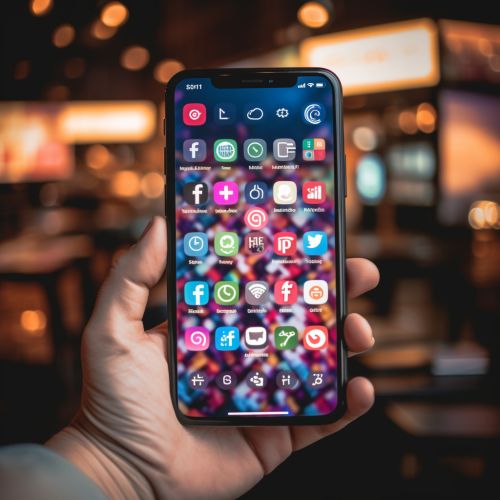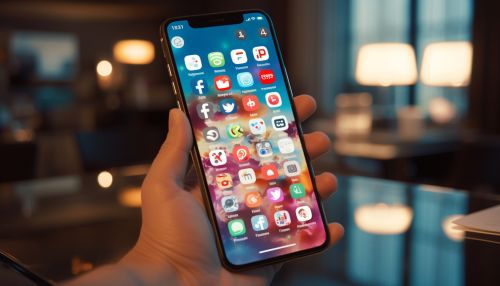Social Media
Introduction
Social media is a term that refers to websites and applications that enable users to create and share content or to participate in social networking. It is a phenomenon that has drastically changed the way individuals, communities, and businesses interact. Social media platforms, such as Facebook, Twitter, Instagram, and LinkedIn, provide users with a myriad of ways to communicate and share information.


History
The history of social media dates back to the 1970s, with the advent of the Internet. The first recognizable social media site, Six Degrees, was created in 1997, allowing users to upload a profile and make friends with other users. However, it wasn't until the early 21st century that social media as we know it today began to take shape. Websites like MySpace and LinkedIn gained prominence in the early 2000s, while photo sharing sites like Flickr and social news sites like Digg emerged soon after.
Types of Social Media
There are several types of social media, each with its unique features and purposes. These include:
- Social Networks: These are sites that allow people to connect with other people with similar interests and backgrounds. Facebook and LinkedIn are examples of social networks.
- Media Sharing Networks: These are sites that allow people to share photos, videos, and other media. They include YouTube and Instagram.
- Discussion Networks: These are sites where people can post questions and get answers from the community. Examples include Reddit and Quora.
- Bookmarking and Content Curation Networks: These are sites where users can save, organize and manage links to various websites and resources. Pinterest and Flipboard are examples of this type of social media.
- Consumer Review Networks: These are sites where consumers can post reviews of products and services for other consumers to read. Examples include Yelp and TripAdvisor.
Impact of Social Media
Social media has had a profound impact on society, influencing various aspects of life, from communication and business to politics and culture.
- Communication: Social media has revolutionized the way people communicate and share information. It has made it easier for people to stay connected with friends and family, meet new people, and express themselves.
- Business: Social media has become a powerful marketing tool for businesses. It allows businesses to reach a global audience, engage with customers, and gather market data.
- Politics: Social media has changed the political landscape by providing a platform for political discourse, enabling real-time communication between politicians and the public, and influencing election outcomes.
- Culture: Social media has influenced cultural trends and promoted global cultural exchange. It has also played a significant role in social movements and activism.
Challenges and Criticisms
Despite its benefits, social media has also been criticized for various reasons. These include:
- Privacy Concerns: Social media sites often require users to provide personal information, which can be accessed by third parties. This has raised concerns about privacy and data protection.
- Misinformation and Fake News: Social media platforms have been used to spread misinformation and fake news, which can have serious consequences.
- Cyberbullying: Social media has been associated with cyberbullying, which can have detrimental effects on individuals, particularly adolescents.
- Addiction: The excessive use of social media can lead to addiction, which can have negative effects on mental health and well-being.
Future of Social Media
The future of social media is likely to be shaped by advances in technology, changes in user behavior, and regulatory developments. Emerging trends include the increasing use of artificial intelligence and augmented reality, the rise of private and ephemeral social networking, and the growing importance of social media for business and e-commerce.
